Cambridge University releases 1913 English test question
- Published
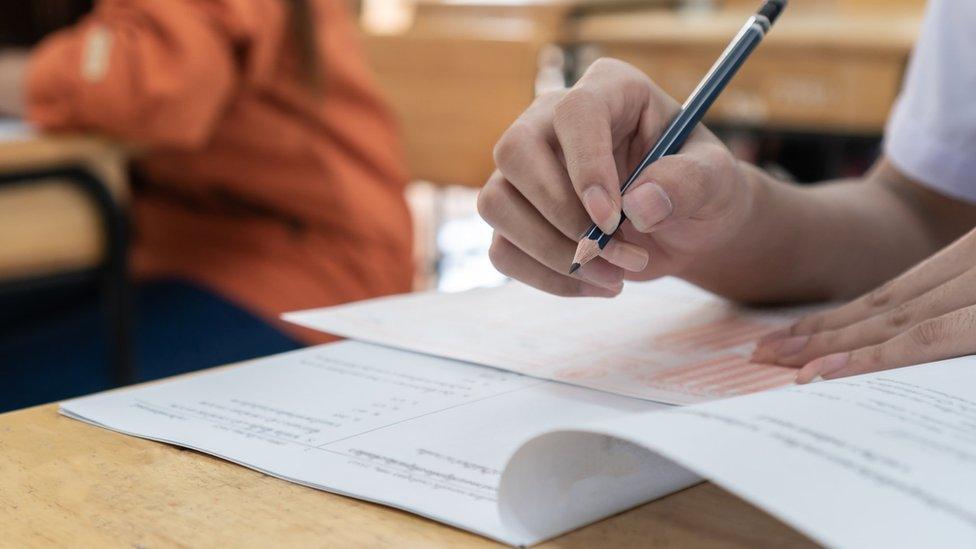
The university's first English exam was conducted in June 1913
Part of an English test first sat in 1913 has been released by Cambridge University to mark 110 years since its first Cambridge English exams.
Only three students took the Certificate of Proficiency in English, which cost them £3 at the time, and took 12 hours to complete.
It included translation, dictation and phonetic transcription and was taken by those wanting to teach the subject.
Cambridge English exams are now taken by 6.1 million people every year.
The original Certificate of Proficiency in English is now known as the C2 Proficiency exam and is the highest-level Cambridge English qualification, Cambridge University Press & Assessment said.
One of the questions faced by the candidates in 1913 has been released.
Spoiler alert: The answers are at the bottom of this article.
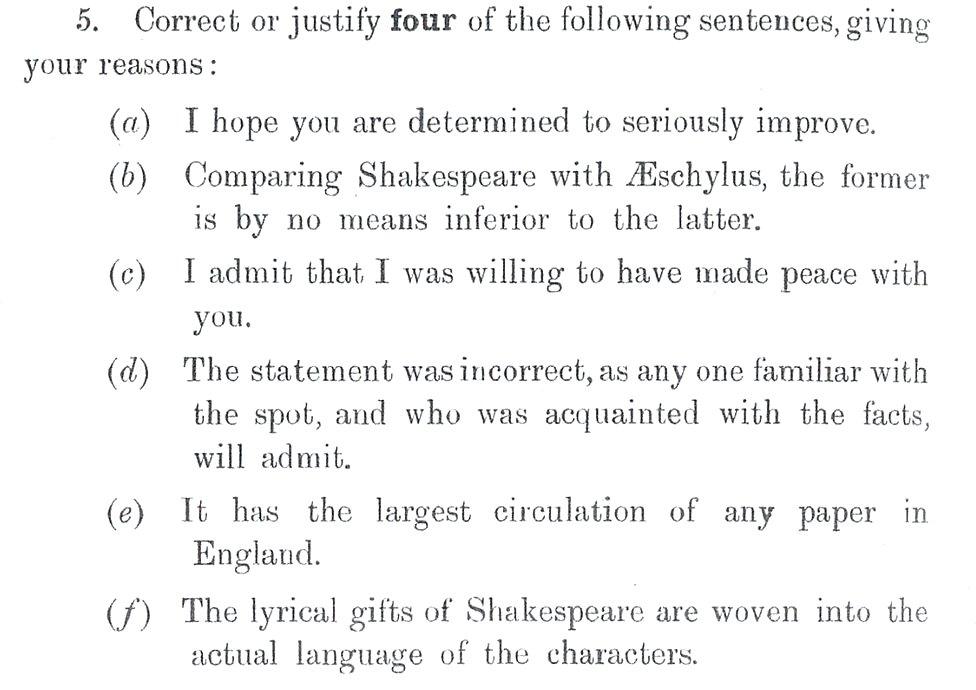
Part of the English exam from 1913
Francesca Woodward, managing director for English at Cambridge University Press & Assessment, said: "From just three candidates, we now open doors for millions of people every year to learn and teach English.
"The historical papers from our archives paint a fascinating picture of how much has changed when it comes to learning English with Cambridge.
"The original papers were a revolution in English language assessment, setting clear goals and emphasising the ability to use the language."
The question from the first ever C2 Proficiency exam paper - which is held in the archives at Cambridge University Press & Assessment - tested students' skills in recognising a split infinitive and use of the correct tense, as the Daily Mail first reported, external.
To mark its anniversary the university asked people: "Have you got what it takes to answer a 110-year-old English exam question?"
The answers are below - with the caveat "that opinions about what is 'correct' English have changed a lot over the last 110 years".
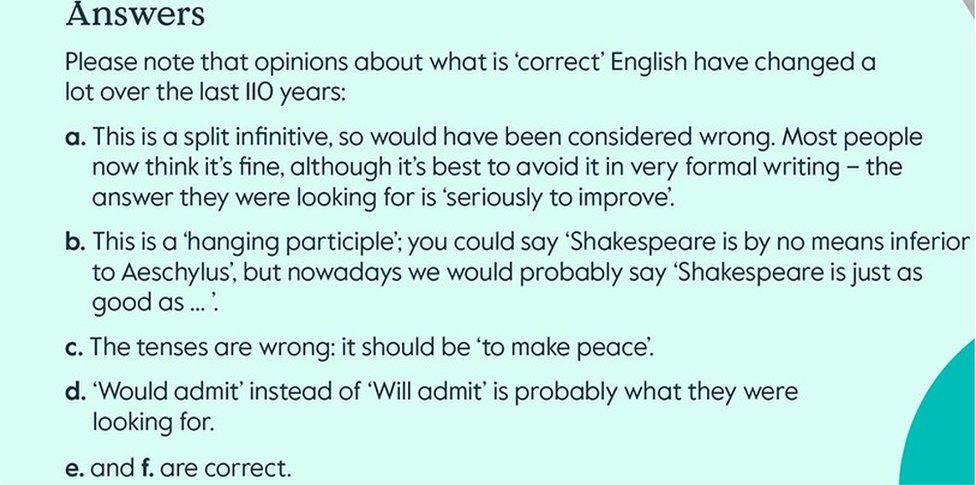
Answers to an exam question from 1913

Find BBC News: East of England on Facebook, external and Instagram, external. If you have a story suggestion email eastofenglandnews@bbc.co.uk or get in touch via WhatsApp on 0800 169 1830
Related topics
- Published29 June 2023
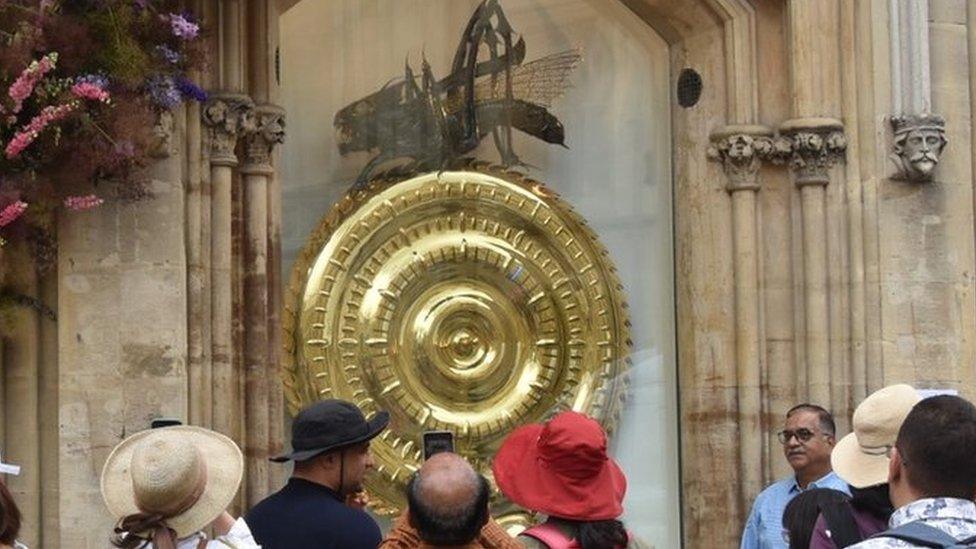
- Published27 June 2023
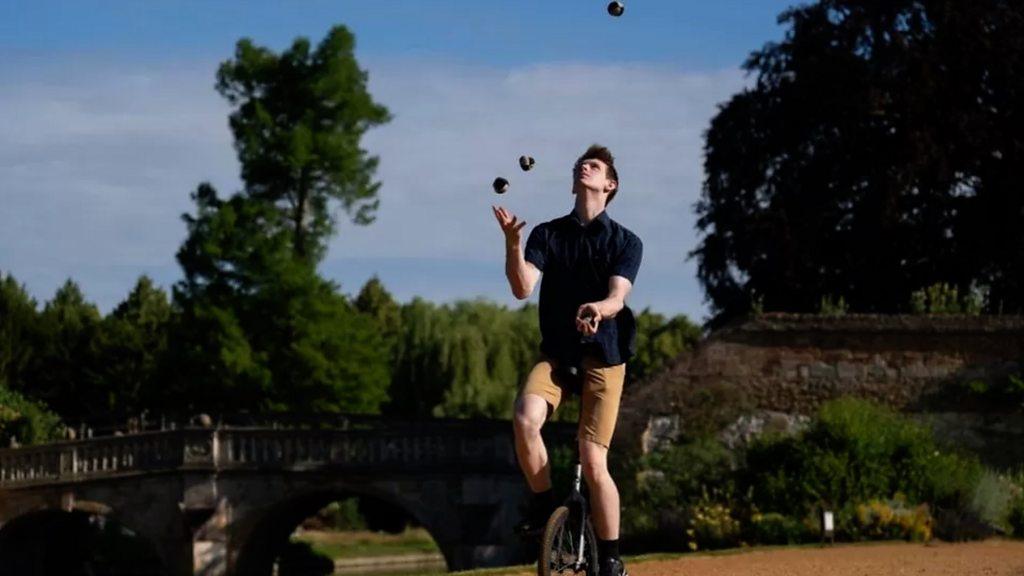
- Published7 February 2022
